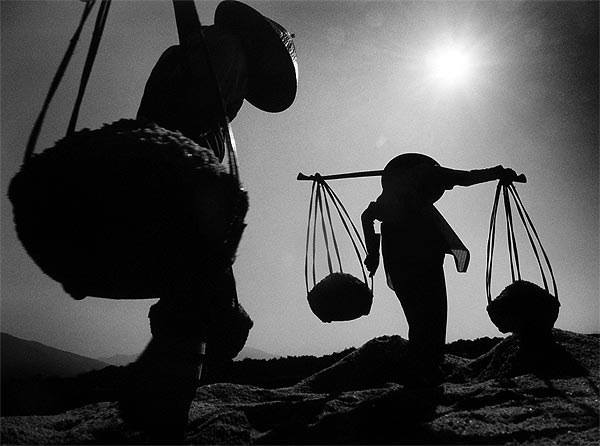In Search of New Platforms for Interreligious and Intercultural Dialogues
by Fr. Eliseo 'Jun' Mercado, OMI
It is a truism that when people of various faiths live together, and not simply in the sense of co-habiting the same space, the question of dialogue and cultural exchange does not arise. When they work, study, struggle, celebrate, and mourn together and face the universal crises of injustice, illness, and death as one, they don’t spend most of their time talking about theories and ideas. Their focus is on immediate concerns of survival, on taking care of the sick and needy, on communicating cherished values to new generations, on resolving problems and tensions in productive rather than in destructive ways, on reconciling after conflicts, on seeking to build more just, humane, and dignified societies. When believers are actively cooperating in such activities, at certain rare but privileged moments, they also express what is deepest in their lives and hearts, that is, their respective faiths, which are the source of strength and inspiration that form the motive force which drives and guides all their activities.
In trying to formulate in the abstract what is involved in the shared life commitment intended by the somewhat inadequate term dialogue, it is important to keep in mind that the raw material of inter-religious encounter is composed of the issues faced daily in concrete ways by Christians, Muslims, Hindus, Buddhists and Indigenous Peoples who live in plural societies. Such people are not professional theologians and have not engaged in formal dialogue situations, but grocers, housewives, manual laborers, nurses, students, clerks and secretaries who want to live conscientiously and with faith amid the challenges that arise in the context of religious and cultural pluralism.
These small streams form new “platforms” that capture the dialogue and exchange that people face as they eke their daily life. These streams become actual platforms for people to meet, pray and work together.
Dom Helder Camara of Recife, Brazil is a good example of this emerging platform. When he was once asked about his unsettling involvement with the poor and the cause of justice in the early 60s, he said that his Christian witness in this area is not the big fire that burns a forest but a lighted matchstick in the darkness of poverty and injustice.
These streams in the world and in our Oblate units, though small and seemingly insignificant, are in reality attempts to light the proverbial matchstick. They are rays of hope and strength to many Oblates, especially to our renewed apostolic communities and their lay partners/associates. They are lighted match sticks that show the way in the search for new and emerging platforms as they forge ahead in interreligious and intercultural enterprise.
We cannot conclude this presentation without recognizing the wounds of the ethnic and religious divides that mar our relationship as people and communities. These wounds are, indeed, very deep and are closely familiar to them. The trauma and pains continue to exercise tyranny over the spirit of the peoples on both sides of the divide. This is one reason why the relations between and among peoples are, largely, shrouded in mutual suspicion and mistrust. There remains the challenge on either side to rise above the general ignorance and bias that have, for years, characterized the relationships between and among faith and ethnic communities and individuals. Now that we have come at a critical juncture in defining and shaping our relationship in the context of interreligious and intercultural enterprise, there is a sense of urgency to dare break new ground both in our discourses and actions. Our sacred spiritual traditions need to rise above the heritage of mutual suspicion and fears and address squarely the conflictual relationships that continue to soil the earth and divide our faith and ethnic communities.
I wonder if this is what the martyred President of Egypt Anwar Sadat expressed at the Knesset during his historic visit of the Holy City of Jerusalem on November 7, 1977.
“… Yet, there remains another wall. This wall continues and constitutes a psychological barrier between us, a barrier of suspicion, a barrier of rejection, a barrier of fear, of deception, a barrier of hallucination without any action, deeds or decision. A barrier of distorted and eroded interpretation of every event and statement. It is this official statement as constituting 70% of the whole process. Today, through my visit to you, I ask why don’t we stretch out our hands with faith and sincerity so that together we might destroy this barrier?”
Our interreligious dialogue and intercultural solidarity have to give birth to a new relationship that heals and empowers. Politics and economics are inadequate to shape that meaningful relationship. We affirm that our religious traditions have the power to not simply to manage conflictual relationships but to transform them. Here, I echo what Fr. Pierre Teilhard de Chardin, SJ said years ago:
“The age of nations is past. It remains for us now, if we do not wish to perish, to set aside the ancient prejudice and build the earth.”
